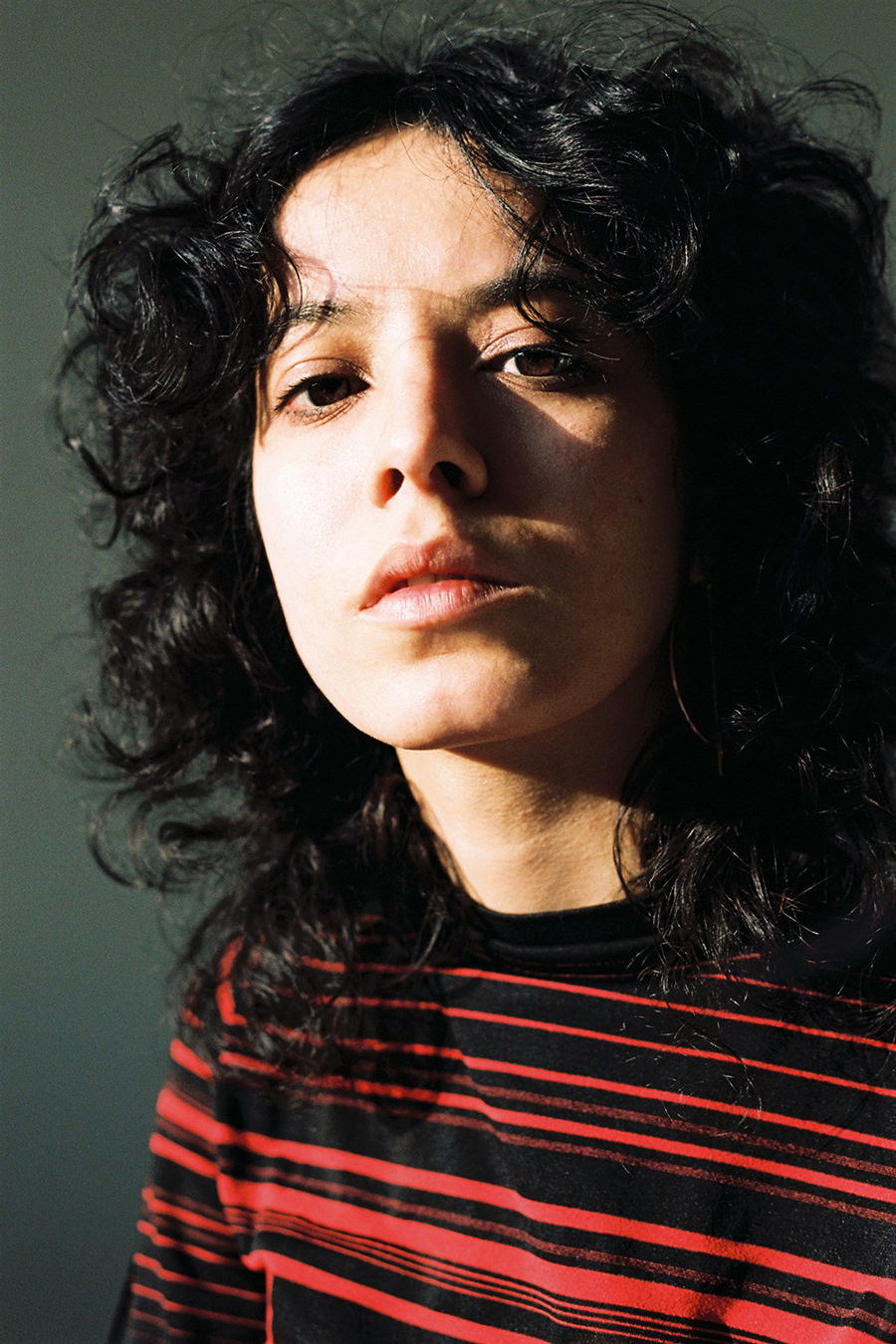Where are you from? It’s a simple question, pretty innocuous. But when the answer given doesn’t quite satisfy the asker, it can quickly be followed with another. “Come on, where are you really from?” Then, the meaning changes. Current debates around identity, police misconduct and everyday racism reveal the dark side of what what it means to be French today. The assimilationist push is at issue. To be considered French, some must give up their origins, heritage, history and swear allegiance to the nation. As the race for the French Presidency enters its final weeks, the team at i-D France took to the streets to question the great national narrative that speaks of a land that is welcoming and respectful — to get perspectives on origins, discrimination and the future.
Faty Alami, 24
What do you do?
I’m a stylist.
Where are you from?
I am Moroccan. I was born in Casablanca and arrived in France at the age of 18.
Are you often asked that question?
I am, but people think I was born here. They think I am a “rabza de France” (an Arab from France). It surprises them that I’m not. I am glad when people see I am a foreigner and ask me about it. I love it when people are interested in my country.
Are you treated differently?
Often, when I don’t agree with something, people think I just don’t understand. “You don’t understand, that’s how it is in France,” they tell me. Even my friends can sometimes make culturally racist statements. “It’s different in your country, you can’t understand,” they say. They think that I am culturally unable to grasp what France is. It is feels quite disapproving to me. It is intellectual racism. It is about heritage. It is mostly unconscious.
Do you feel discriminated against?
I do, mostly in the professional world. I was told for instance that my name was not “trendy” enough. During an interview for a sales assistant job, I was told that my physical appearance was too “untypical” for the job. I’m a different threat for racist people because I’m not a thug, I am kind and polite — they don’t understand. Once I wanted to help an old lady in a laundry, she had dropped her clothes on the floor. She yelled at me that I was dirtying her clothes and that people like me were invading her country. However, I consider those people as exceptions. They don’t realise that they are foreigners to me as well, but I show a lot of empathy to them. I even feel empathy for that old lady.
Do you think there is institutional racism as well?
I do. I face humiliation each time I have to renew my visa. You go through hell just to get a little piece of paper. When I go to ask for my papers, administration people often ask me, “how are you useful to France?” or “do you realise all the money you suck up?” They refuse to give me any power. Yet I pay taxes, I organise events. Now I’m told I have to earn 130% of the SMIC (the minimal wage) in order to become French. If I don’t, I’ll have to leave. I’m doing a PhD, do you believe that? And I can’t go back to Morocco. I am always “too much” of a foreigner.
What’s your dream?
I just dream to be free without papers.
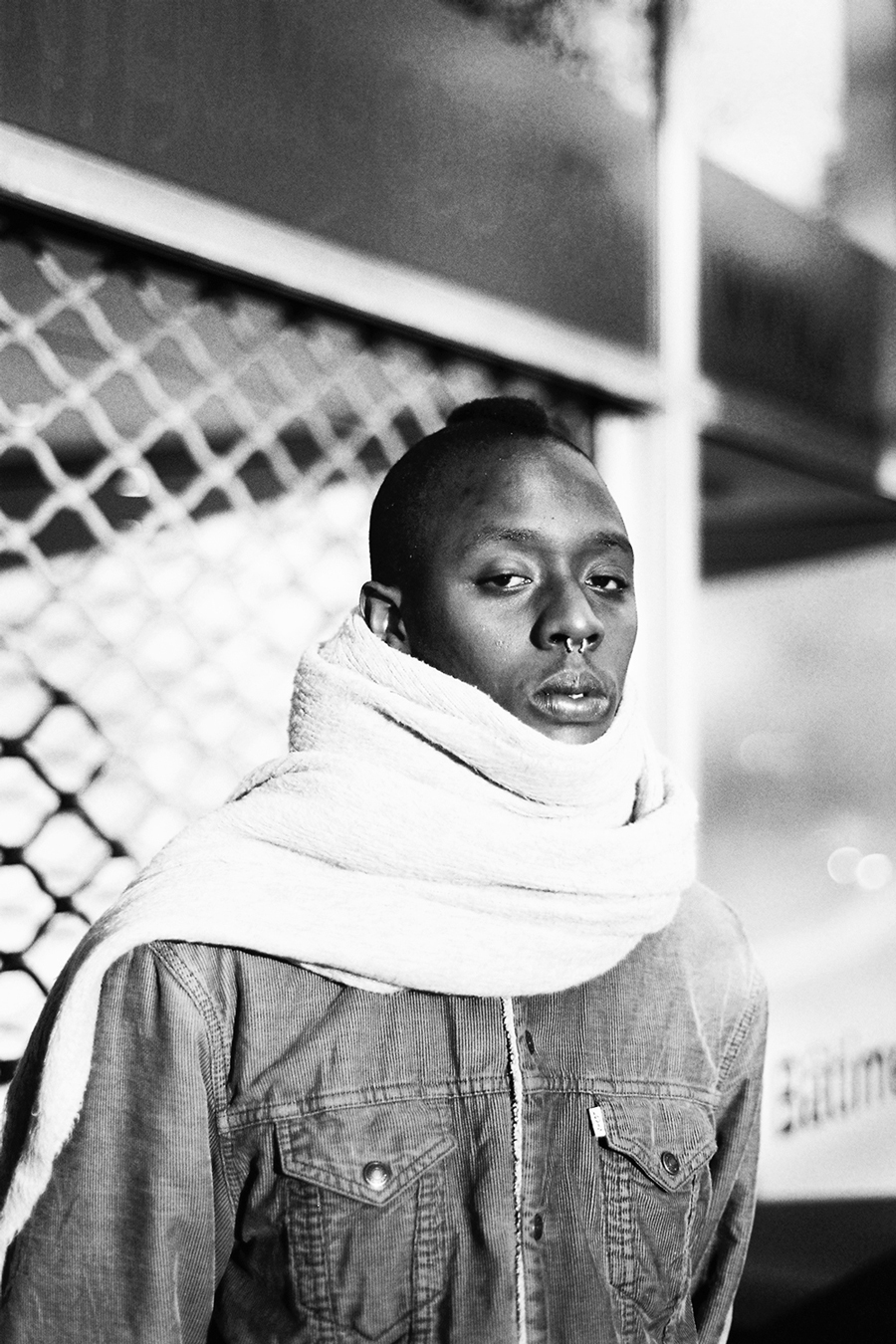
Magueye Diouck, 24
Where do you come from?
I was born in Paris, my parents are Senegalese.
Are you often asked that question?
Yes and no. Some people feel the need to ask it, as if I must come from somewhere else. Some ask me directly where my parents are from. They immediately understand I am from here but my parents are foreigners, yet I am not a foreigner in their country. I am proud of my parents’ origins and I know them very well.
How is it when you go to Senegal?
In Africa, when you come from Europe, your are a stranger as well. Even when you speak the same language as them, you are a white. They call me “the Parisian”. But they don’t bear you a grudge for being a foreigner, they are very open-minded and respectful to others. Their approach to otherness is completely different from the French approach. You owe respect to the other.
How is it being young in France ?
I was lucky I grew up in the east of Paris where racism is being caught up by diversity. I can feel the difference when I travel around Paris or to other places in France sometimes. Depending on where you go, racism is not exactly the same.
Do you think that France is a country with a racist tendency?
I don’t know. Part of France is racist, but idiots are everywhere, in every country. We have to accept them in order to overtake them and stand together. To show that France is more than that.
What do you think of the assimilationist nature of France?
Here, people have trouble considering difference as a good thing. That’s where racism comes from. People denounce those differences. Just one look at the past can make us realise that those differences made history.
Do you experience a lot of discrimination?
I often do, but I prefer not to pay attention to it. People are disturbed not only by the colour of my skin but also by my style. Racism is a form of discrimination amongst many others. I rarely realise it the moment it happens, I directly suppress it. Then this hatred grows inside me. Afterwards I talk and share, and it generally passes because I focus on the good people around me and I tell myself that racists are a minority.
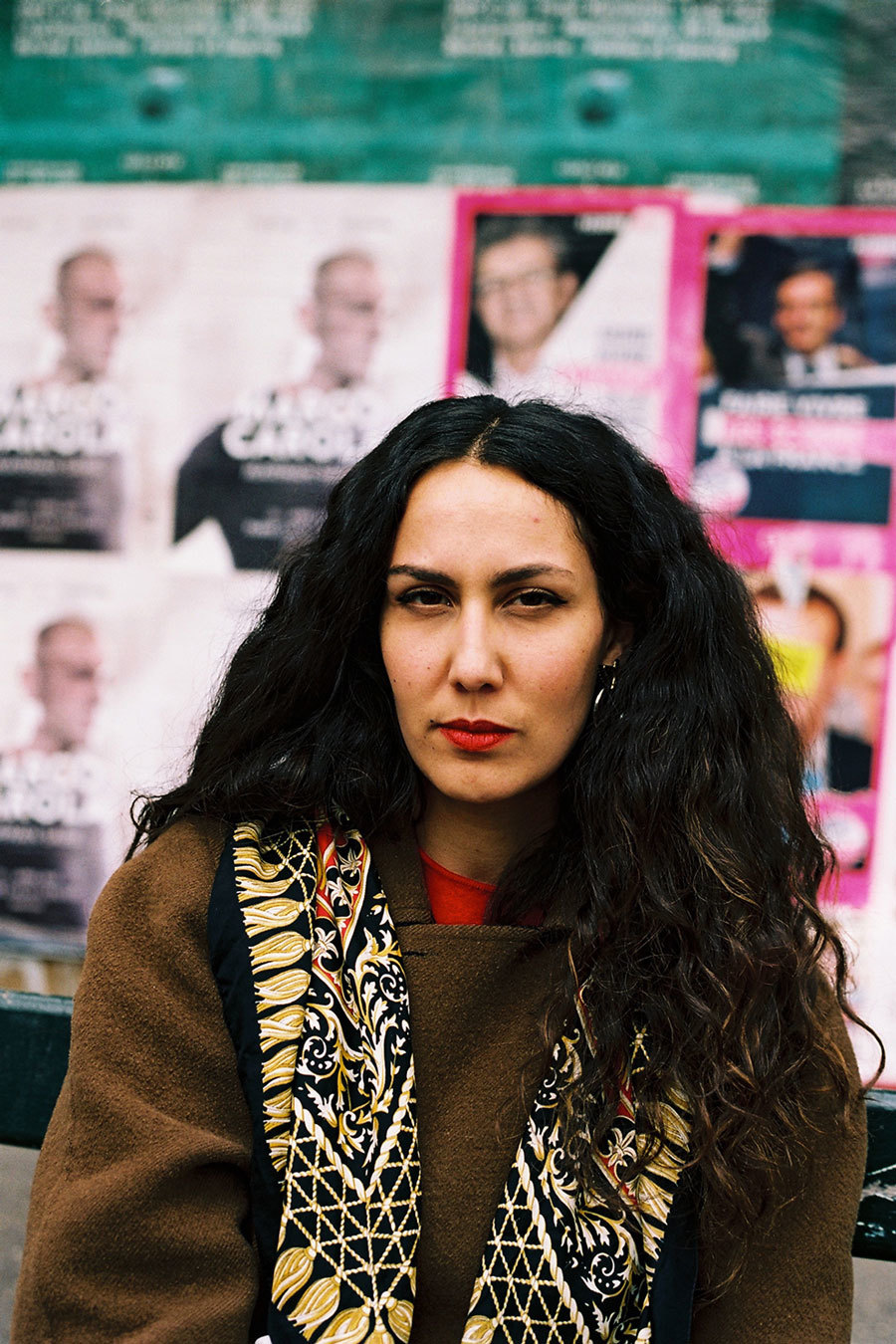
Sarah Maison, 27
What do you do?
I am a musician, author, composer and performer. I also do small hospitality jobs.
Where do you come from?
I was born in Hyères les Palmiers in the south-east of France.
Does your family have foreign origins?
Yes, my mother is a Berber Moroccan born in Casablanca, and my father is from Cantal. I like to say I am Cantalo-Berber.
Do you get asked that a lot?
Yes, quite often. Sometimes people think I am from Mexico. They don’t immediately understand my origins. In my music I mix different genres and I draw from my heritage. Then people quickly understand that I have Moroccan roots.
Have you faced discrimination?
Not really. But I’ve experienced some pretty disturbing remarks. Especially when I was a kid, they would call me a “filthy Arab”, for instance. I remember this boy at my school who would always call me that. He was actually just repeating things he had heard at home. One day, I brought to school an amazing light-up Yo-Yo. That boy wanted to borrow it from me, then I made him promise he would never call me a “filthy Arab” again. And he never did.
Do you think France is generally racist?
It is a rather racist country. People are generally afraid of each other. And everyday racism is very frequent. I was on the metro few days ago and I walked in front of a begging Syrian family. A woman shoved me and started shouting: “Go back to your country!” to the family. I was devastated and I felt an incredible anger rising inside me. That was terrible because you should never be violent with people like that, but your instinct tells you to throw their violence back to their faces. And racist statements are getting more and more uninhibited. Before, talking the way she did used to be shameful. Now it’s ok.
How do you feel about the upcoming presidential elections?
I‘m a bit afraid. I have the feeling that Trump’s election allowed all the clowns to think: “Yeah, I can do I too!”
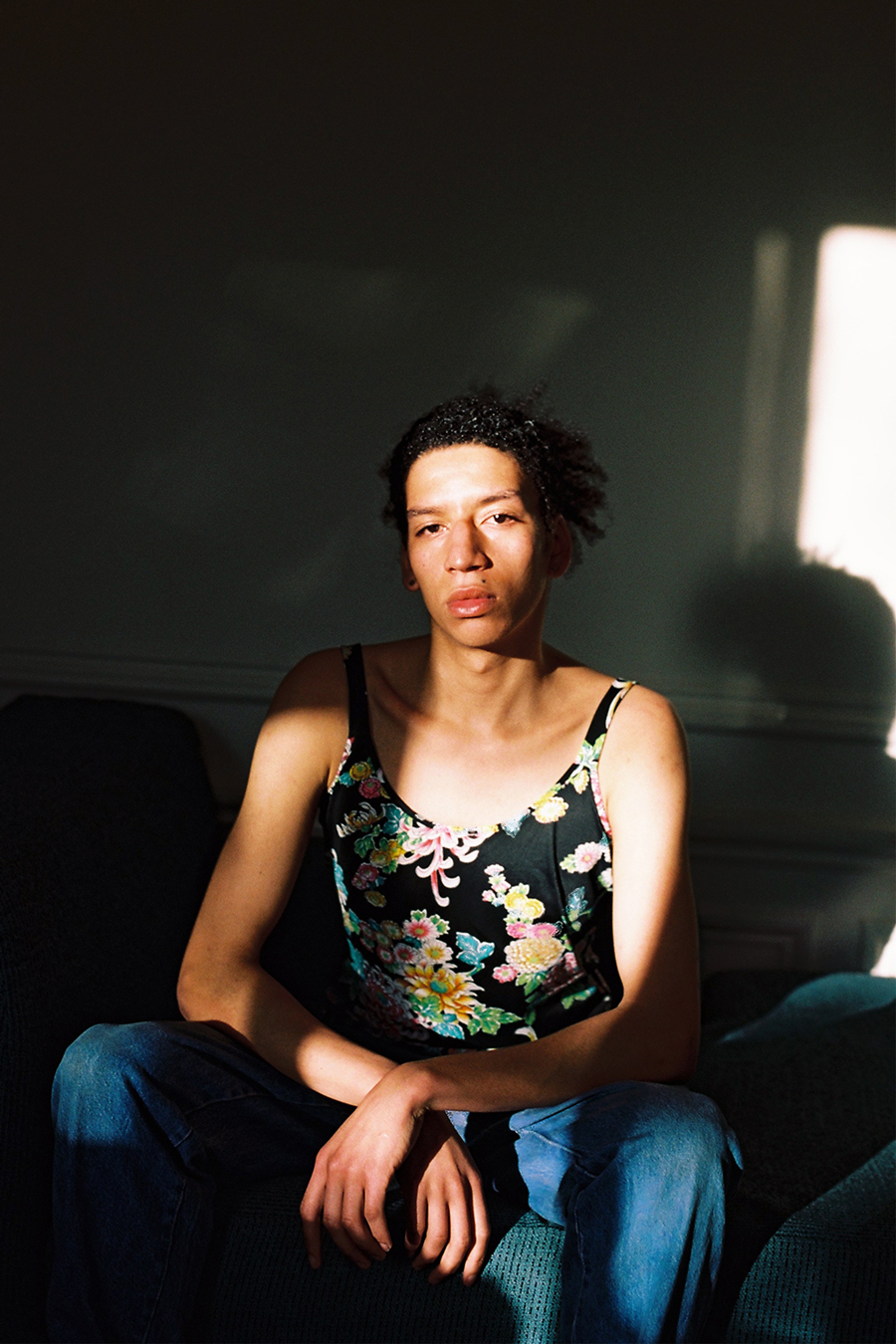
Dourane Fall, 22
What do you do?
I do styling, modelling, casting and I set up a textile making project with friends.
Where are you from?
I am a Parisian. I come from Stalingrad but I prefer to call it Stalincrack. I am the child of mixed-race parents whose own parents were mixed-race themselves. My mother was born in France and my father in Senegal. On my father’s side, my grandfather is a Wolof Senegalese and my grandmother is French-Beninese and Nigerian. On my mother’s side, my grandmother is Sicilian Pied-Noir, and my grandfather is Kabyle.
Do you get asked that a lot?
A lot. I react differently according to the situation. When I’m asked “Where are you from?” I find it vague. I answer that I’m from Paris. Often people become awkward and reply, “Oh no, I meant your origins.” I prefer when the question is about my origins. It’s a matter of precision.
Do you experience a lot of discrimination?
Totally. Since I’m mixed-race, I don’t look like an “ancestral Frenchman.” But I am also queer. My sexuality is often a problem. As a child I already got questions like: “Are you a girl or a boy?” and “Are you a fag or transvestite?” I was 6. I realised much later how important those topics were, when I met afro-feminist friends who made me aware of a lot of things. Then I understood that it was not normal that people touched my hair as if I were an alien, that they constantly asked me where I was from or forced some questions and behaviours on me they would never force on a white person.
Do you think France has a problem with difference?
More than a problem with differences, France has a problem with sincerity. There is a latent hypocrisy when it comes to identity issues. They call France a welcoming land but they decide who is French. I am French, I was born here. My parents too. My grandfather is called Papi Jo when his real name is Hamza. It means a lot. France forces irrelevant identity issues on people. The terrorist attacks, the Théo case, the obsession about burkas are topics that show the French hypocrisy. People are told they are French. They get dignity, as long as they bury their original identity and heritage.

Tewfik Tabouche, 32
What do you do?
I am an architect but I have just resumed my studies in town planning.
Where are you from?
I’m Algerian. I’m from Oran. I’ve been in France for 9 years.
Do you get asked that a lot?
Often, but very kindly. I have been a naturalised citizen for 3 years. It seems normal to me that people ask. I don’t really see a problem with that question. I like to believe people are genuine and benevolent. And if there is a problem, never mind.
Do you think France is a racist country?
I believe that the West is in a general frenzy, a common withdrawal. Surveys say that France is racist but I don’t see it personally in my everyday life. The Le Pen threat in these elections emphasises this idea that France is racist. Are elections representative of a country though? That question is beyond us. From where I stand, I know that some Arabic countries are quite racist as well. According to my personal experience, I would say that France is not a racist country, but is likely to become one.
How do you feel about the assimilationist policy of France?
Sometimes I almost feel ashamed to say that I haven’t experienced everyday racism because it is a huge problem for some people. But I haven’t have experience of it. Yet I am aware of my otherness. I was talking about it with a friend, who told me: “You live with an Anglo-Saxon perspective of multiple identity.” It allows me to overcome the French assimilationist view. On the other hand, I am very uncomfortable with the “positive discrimination” ideas. That puts us in an impostor position that is difficult to deal with.
How do you feel about the coming elections?
The elections are important to me. It is the first time I will vote for a president in France. It’s quite moving. I am dreading it. When I see that Fillon wants to restrict family reunification, that he doesn’t suggest any policy for foreign students, and that his foreign policy verges on Le Pen’s program, it makes me sick.
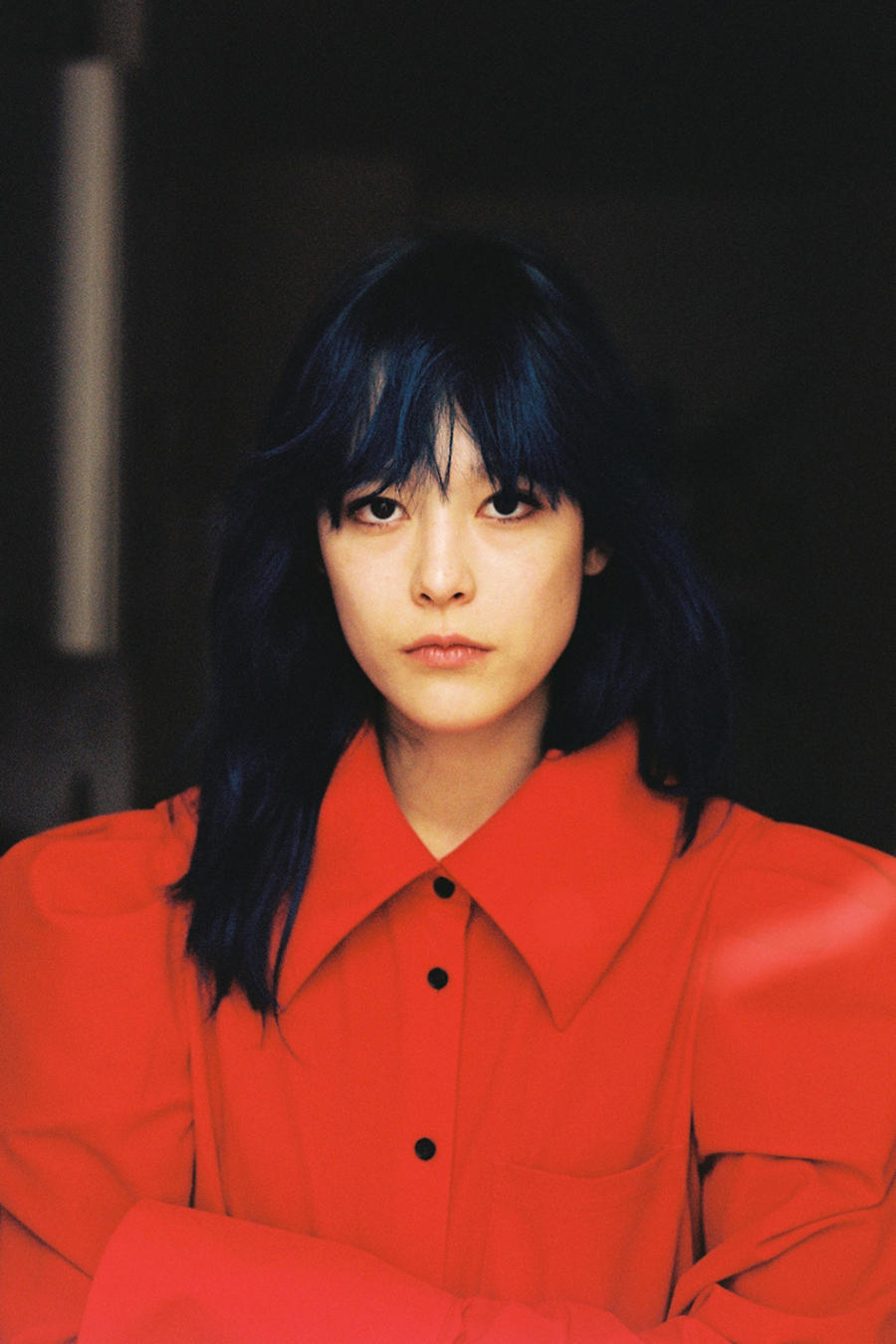
Mae Lapres, 25
Where are you from?
I was born and raised in Paris. My mother is Chinese and my father is Canadian.
Do you think France is a racist country?
I don’t think so, but I have been in countries where I have felt better than here. It’s not only about assaults or insults that you get on the street. Sometimes it’s just about a feeling. I felt very comfortable in New York. Nobody asks you where you are from because you are not white. In Asia, it is the other way around. If you are white, you get immediately labelled. It is not necessarily racism, it has actually more to do with curiosity. It is all about education. When I was a child, kids in my school would make fun of me because I was different. Their parents would never intervene. When I bump into them now, none of them would dare say such things again. As a kid, I hated them. Now, I forgive.
So you’ve experienced discrimination?
I have, unfortunately. As a kid at school and then when I started my career as a model. I don’t know if you can talk about racism in the fashion industry. Yet I was told many times, “the fashion market has not opened towards Asia at the moment”. It has been several years since I started doing fashion shows and I have a lot of work but I am still labelled as a “Chinese model” though.
What do you feel about the coming elections?
I am not very interested in politics. I don’t feel like I am in danger. Yet I think that it is essential to stop the rise of the Front National.
What are your ambitions for the future?
I would like to grow vegetables and raise a bunch of chickens, haha.
Credits
Text Micha Barban-Dangerfield
Photography Roddy Bow
